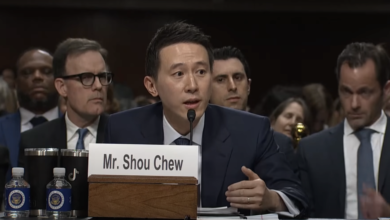Employment opportunities are a pillar of military recruitment. Recruiters focus much of their efforts on low-income schools and communities, promising that the military provides valuable skills and job training.
Television commercials for the Army often show soldiers transitioning into the professional world, depicting military
|
The idea that one can serve a short term in the military and emerge a valued, marketable worker attracts youth fearful of life after high school, as well as older workers who struggle under capitalism. While many join the military hoping for a better life for themselves and their families, the reality is that veterans actually experience a dramatically higher rate of unemployment.
A recent study by consulting firm Abt Associates Inc. discovered that a staggering 18 percent of veterans who sought work within one and three years of their discharge were unemployed. The current unemployment rate in the United States is 4.9 percent, showing that veterans are far more likely to suffer unemployment than civilians.
Of the veterans who do find employment, 25 percent earn less than $21,840 annually. The study said that the reasons veterans are denied jobs are the very things they hoped to overcome when they joined the military—lack of technological skills and poor education.
The issue of Post Traumatic Stress Disorder has been a difficult obstacle for veterans trying to return to civilian life. The Department of Veterans Affairs (VA) offers severely inadequate assistance. The study also revealed that employers are less likely to hire veterans because they fear a mental condition. Veterans with PTSD not only have to struggle with their own inner demons and the effect it has on their families; they are also discriminated against by employers for their condition.
The reserves uses the potential for quality employment as a recruiting tool much more than the active-duty military, promoting the idea of a “citizen soldier” who is in the military for only one weekend a month. Reservists are convinced that they will receive job training and education, and have the freedom to pursue a career while serving a small obligation to the military.
As it turns out, reservists are finding themselves locked into active-duty status and being sent on repeated deployments. Moreover, they are also being denied their jobs when they return. The Labor Department has reported high rates of formal job complaints filed by reservists. In 2006, 1,357 reservists filed formal complaints after being refused their old jobs upon returning from Iraq and Afghanistan.
While thousands of veterans struggle to find employment after leaving the military, many cannot even find a place to live. The VA refuses to track the number of homeless veterans.
The National Coalition for Homeless Veterans estimates hundreds, perhaps thousands, of soldiers who fought in Iraq or Afghanistan are homeless or living in shelters. Over 1,200 homeless veterans have received help from NCHV. However, groups aiding homeless veterans assert that this number reflects only a fraction of Iraq and Afghanistan veterans who are homeless.
When compared with the rate of homeless veterans following the Vietnam War, the future of veterans of Iraq and Afghanistan looks very grim. Vietnam veterans who became homeless did so after spending five to 10 years trying to readjust to civilian life. Veterans of the current wars are ending up with no place to live after only 18 months.
The problems veterans face upon separating from the military—lack of jobs, alcohol and drug abuse, denial of benefits, suicide, homelessness—all stem from the same root cause. The military-industrial complex has one goal in mind: profit.
The U.S. government spends millions on a single bomb, but will not spend an adequate amount establishing support systems for veterans once they return from combat. The massive military budget is used to increase the wealth of the capitalists, while the veterans of their imperialist wars are tossed into poverty.
The deteriorating conditions for veterans and the increasing number of problems they must face reveal the true nature of this war: profits over people.
Michael Prysner is an Iraq war veteran running for Congress (22nd District – Fla.) as a candidate of the Party for Socialism and Liberation. For more on his campaign, click on this link.






